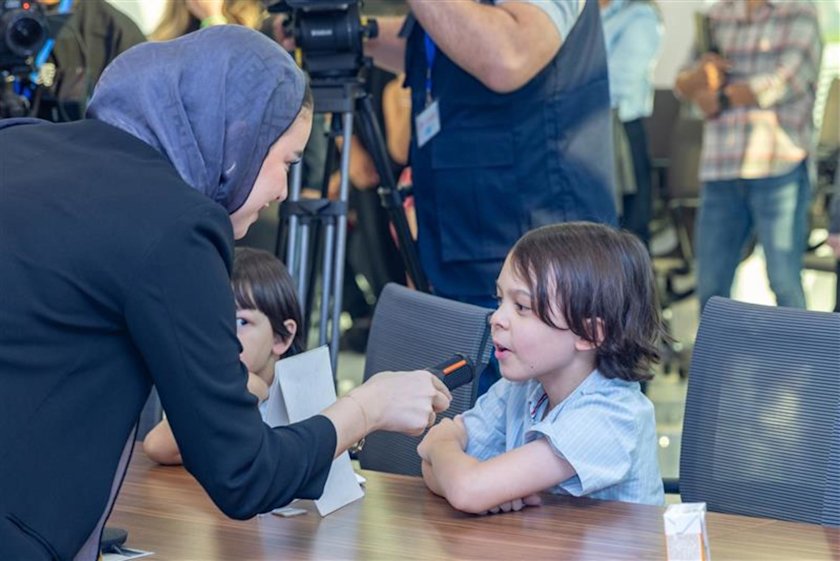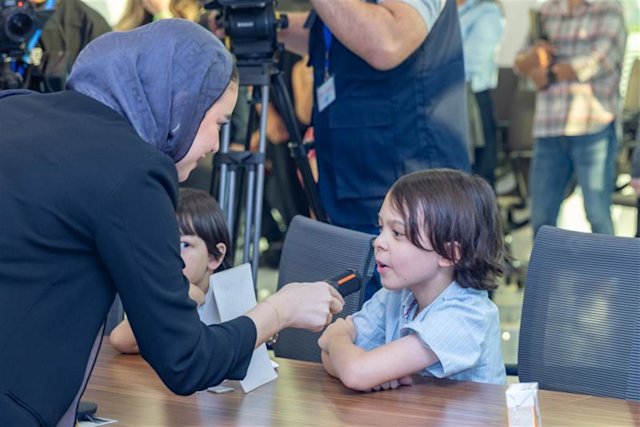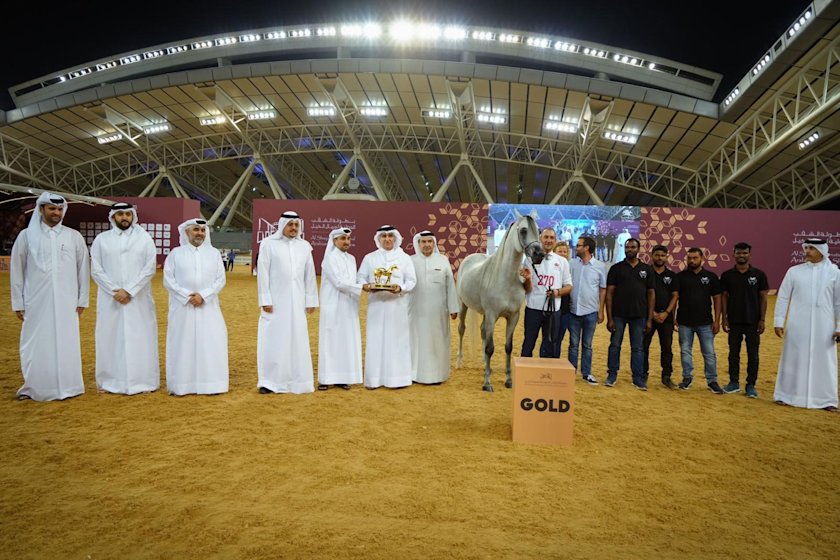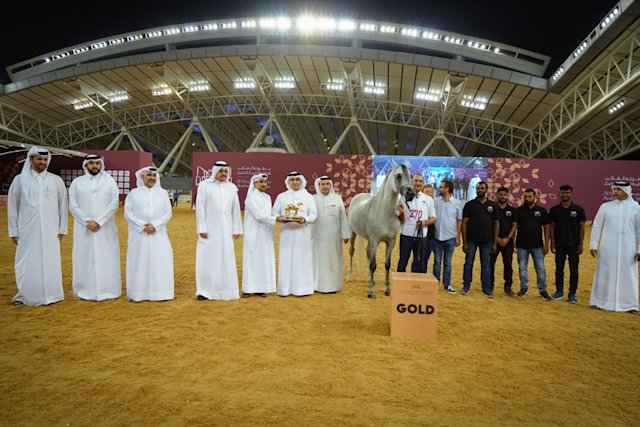Stewards of the Environment
Islamic values were blended with the value sustainability at Education City during Ramadan, as QF’s zero-waste community iftar returned.
Led by a team of volunteers, the daily meal at Minaretein (Education City Mosque) offered portion sizes designed to reduce leftover food, multi-compartment boxes made of eco-friendly material, whole rather than packaged fruit, reusable table covers, and water dispensers rather than plastic bottles. With any food waste being composted and reused at Education City, the iftar represented both a community gathering and a learning experience about the Islamic principles of moderation and ecological stewardship.
Meanwhile, art foundation students at QF partner university Virginia Commonwealth University School of the Arts in Qatar (VCUarts Qatar) created their own imaginative ‘iftar’ – a display of dishes made entirely of paper, which went on show at Mathaf: Arab Museum of Modern Art in Education City.
And the Holy Month also saw the airing of a special Ramadan edition of QF’s educational and entertaining TV show Siraj, specifically aimed at engaging children in Qatar and across the Arab world with the virtues of Ramadan and the significance of the month.
Islamic values were blended with the value sustainability at Education City during Ramadan, as QF’s zero-waste community iftar returned.
Led by a team of volunteers, the daily meal at Minaretein (Education City Mosque) offered portion sizes designed to reduce leftover food, multi-compartment boxes made of eco-friendly material, whole rather than packaged fruit, reusable table covers, and water dispensers rather than plastic bottles. With any food waste being composted and reused at Education City, the iftar represented both a community gathering and a learning experience about the Islamic principles of moderation and ecological stewardship.�
Meanwhile, art foundation students at QF partner university Virginia Commonwealth University School of the Arts in Qatar (VCUarts Qatar) created their own imaginative ‘iftar’ – a display of dishes made entirely of paper, which went on show at Mathaf: Arab Museum of Modern Art in Education City.
And the Holy Month also saw the airing of a special Ramadan edition of QF’s educational and entertaining TV show Siraj, specifically aimed at engaging children in Qatar and across the Arab world with the virtues of Ramadan and the significance of the month.
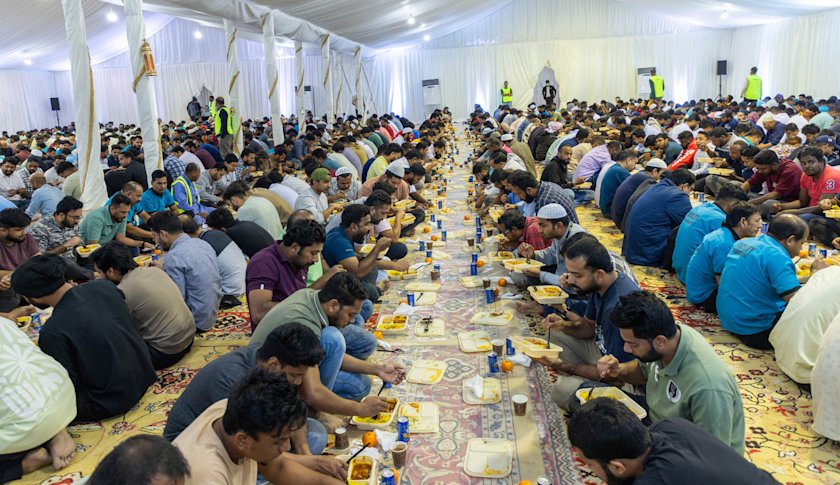
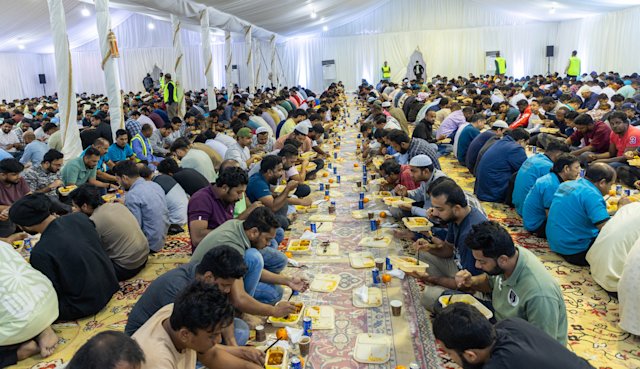
Teaching our children a virtue involves not just informing them about it, but also empowering them to implement and embrace this virtue in their daily lives.
The Growth of an Ecosystem
And as well as expanding its sporting offer, QF is also expanding its ecosystem of education – as March demonstrated.
QF’s Hamad Bin Khalifa University (HBKU) announced the launch of a series of new undergraduate engineering programs, from the 2024-25 academic year, through its College of Science and Engineering; while VCUarts Qatar revealed its new Bachelor of Fine Arts program in Kinetic Imaging, with a focus on game design, and fellow partner university Carnegie Mellon University in Qatar introduced three new business administration courses specifically tailored for the Gulf region.
HBKU also launched the Qatari Faculty Development Fellowship Program, designed to develop talented Qatari nationals and offer them the opportunity to join the university’s faculty.
And HBKU’s Qatar Computing Research Institute marked six years of collaborating with the United Nations Department of Political and Peacebuilding Affairs on new technologies aimed at fostering peace; while four members of the university’s community were honored by Boston Consulting Group’s V60 Awards for championing sustainability through their research and advocacy, making them part of a regional network dedicated to tackling climate change and helping to shape a greener future.
And as well as expanding its sporting offer, QF is also expanding its ecosystem of education – as March demonstrated.
QF’s Hamad Bin Khalifa University (HBKU) announced the launch of a series of new undergraduate engineering programs, from the 2024-25 academic year, through its College of Science and Engineering; while VCUarts Qatar revealed its new Bachelor of Fine Arts program in Kinetic Imaging, with a focus on game design, and fellow partner university Carnegie Mellon University in Qatar introduced three new business administration courses specifically tailored for the Gulf region.
HBKU also launched the Qatari Faculty Development Fellowship Program, designed to develop talented Qatari nationals and offer them the opportunity to join the university’s faculty.
And HBKU’s Qatar Computing Research Institute marked six years of collaborating with the United Nations Department of Political and Peacebuilding Affairs on new technologies aimed at fostering peace; while four members of the university’s community were honored by Boston Consulting Group’s V60 Awards for championing sustainability through their research and advocacy, making them part of a regional network dedicated to tackling climate change and helping to shape a greener future.
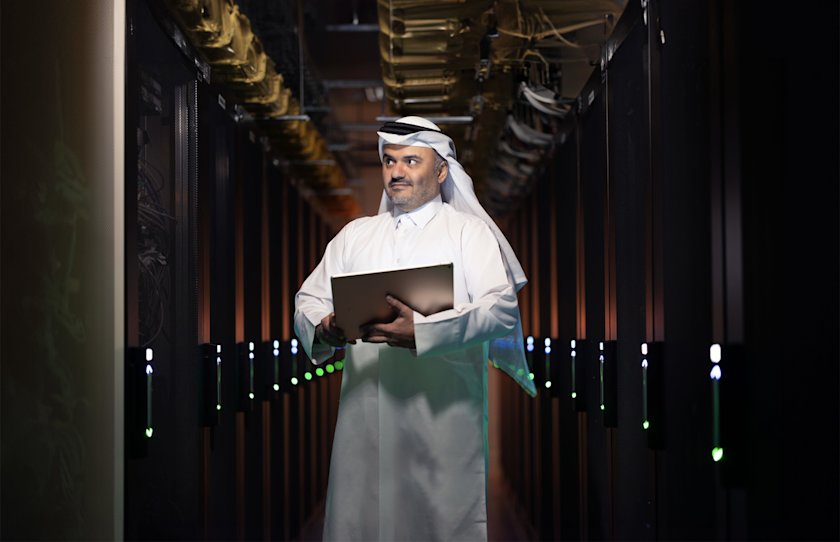
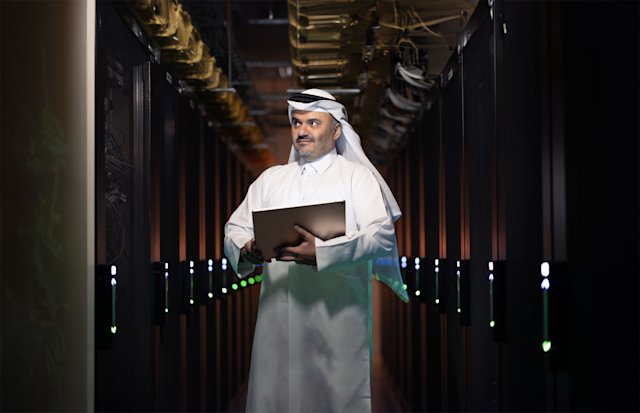
Through this initiative, we are looking to tap into the Qatari community’s vast potential and support its citizens in pursuing fulfilling careers in academics or research.
VCUarts Qatar’s new undergraduate program in kinetic imaging offers the chance to study:
- Game design
- Creative coding
- Motion graphics
- Sound design
- 3D modeling
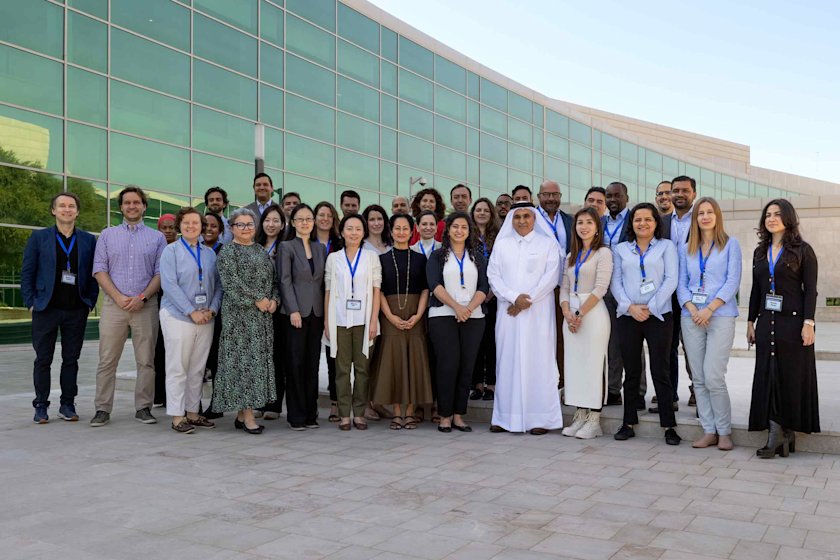
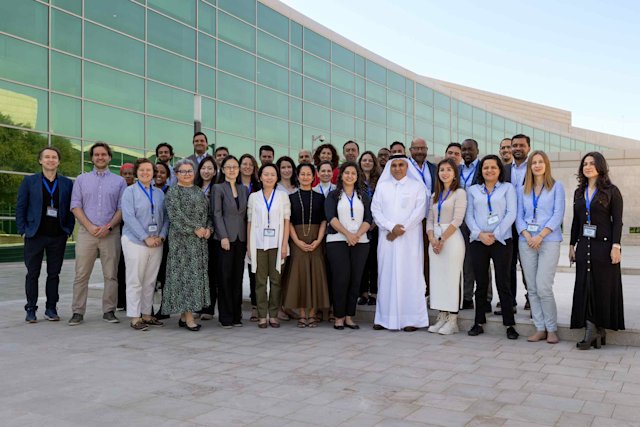
Solutions Through Traditions
For generations, vital knowledge about how to preserve the environment has been passed down – and in April, a new international prize was launched by QF’s Earthna Center for a Sustainable Future to honor this practice, but also to promote its continuing value in addressing the sustainability challenges of today and tomorrow.
The Earthna Prize will support projects and organizations that preserve, integrate, and adopt traditional knowledge and cultural heritage in tackling contemporary issues in the field of sustainability. With a prize pool of US$1 million, winners will use the prize to develop, continue, and scale up their work, as well as having a global platform to showcase their projects and seek opportunities for global collaborations.
As it was launched on International Earth Day, Her Excellency Sheikha Hind bint Hamad Al Thani, Vice Chairperson and CEO of Qatar Foundation, said: “The Earthna Prize is a call to honor and learn from the deep ecological wisdom of indigenous peoples.
“These invaluable traditions provide us with time-tested institutions and precepts that truly work.”
For generations, vital knowledge about how to preserve the environment has been passed down – and in April, a new international prize was launched by QF’s Earthna Center for a Sustainable Future to honor this practice, but also to promote its continuing value in addressing the sustainability challenges of today and tomorrow.
The Earthna Prize will support projects and organizations that preserve, integrate, and adopt traditional knowledge and cultural heritage in tackling contemporary issues in the field of sustainability. With a prize pool of US$1 million, winners will use the prize to develop, continue, and scale up their work, as well as having a global platform to showcase their projects and seek opportunities for global collaborations.
As it was launched on International Earth Day, Her Excellency Sheikha Hind bint Hamad Al Thani, Vice Chairperson and CEO of Qatar Foundation, said: “The Earthna Prize is a call to honor and learn from the deep ecological wisdom of indigenous peoples.
“These invaluable traditions provide us with time-tested institutions and precepts that truly work.”
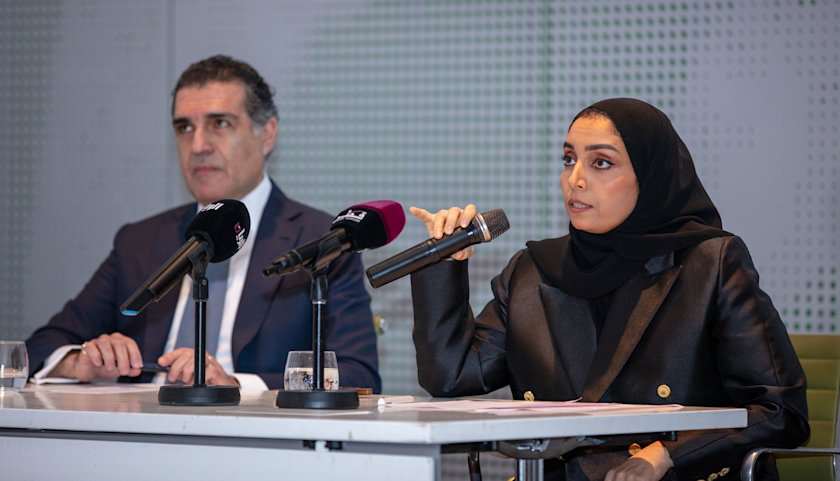
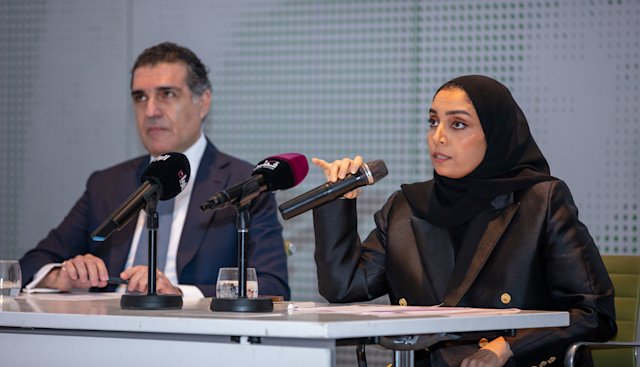
It goes beyond mere recognition – it’s about providing tangible support to initiatives that rescue ancestral wisdom and cultural heritage in the context of environmental sustainability.
The themes of the Earthna Prize are:
- Water resource management
- Food security
- Sustainable urbanism
- Land stewardship
A Social Responsibility
With a shared vision for a sustainable future, QF and one of Qatar’s leading companies joined forces in April to harness each other’s expertise in order to meet environmental, social, and governance goals.
Announced on the sidelines of Qatar Economic Forum 2024, the three-year partnership will combine the efforts of QF and Ooredoo Qatar in the areas of education, health, and community, and leverage global platforms and networks to enhance the exposure and effectiveness of their joint initiatives.
QF’s Earthna Center for a Sustainable Future will also support and guide Ooredoo Qatar’s sustainability initiatives through thought-leadership, expertise, and access to global sustainability networks, to help the company meet its environment and social objectives.
“We believe in the influential role the private sector can play in setting a precedent through its actions – by driving direct, tangible, and positive change for the benefit of our societies – and we will always welcome opportunities to partner with private organizations so that our respective ecosystems of knowledge and resources can be combined and magnified to collectively make an impact on people’s lives,” said Dr. Gonzalo Castro de la Mata, Executive Director of Earthna.
With a shared vision for a sustainable future, QF and one of Qatar’s leading companies joined forces in April to harness each other’s expertise in order to meet environmental, social, and governance goals.
Announced on the sidelines of Qatar Economic Forum 2024, the three-year partnership will combine the efforts of QF and Ooredoo Qatar in the areas of education, health, and community, and leverage global platforms and networks to enhance the exposure and effectiveness of their joint initiatives.
QF’s Earthna Center for a Sustainable Future will also support and guide Ooredoo Qatar’s sustainability initiatives through thought-leadership, expertise, and access to global sustainability networks, to help the company meet its environment and social objectives.
“We believe in the influential role the private sector can play in setting a precedent through its actions – by driving direct, tangible, and positive change for the benefit of our societies – and we will always welcome opportunities to partner with private organizations so that our respective ecosystems of knowledge and resources can be combined and magnified to collectively make an impact on people’s lives,” said Dr. Gonzalo Castro de la Mata, Executive Director of Earthna.
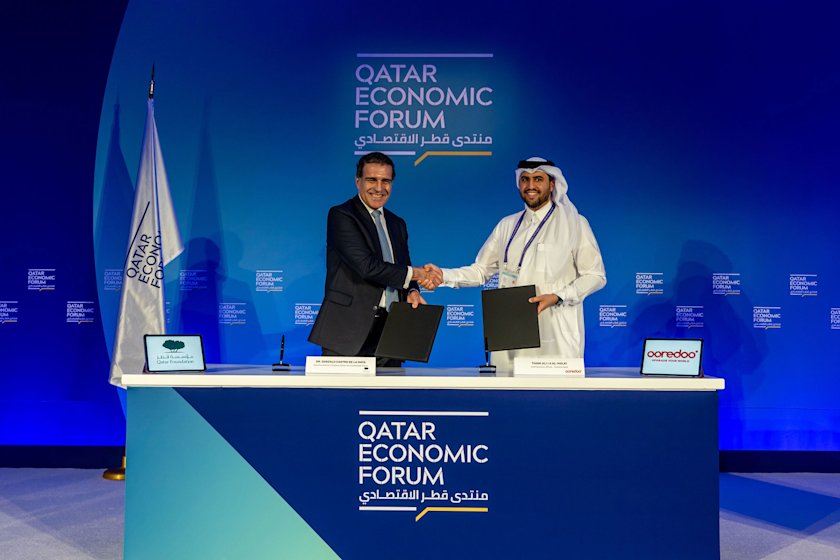
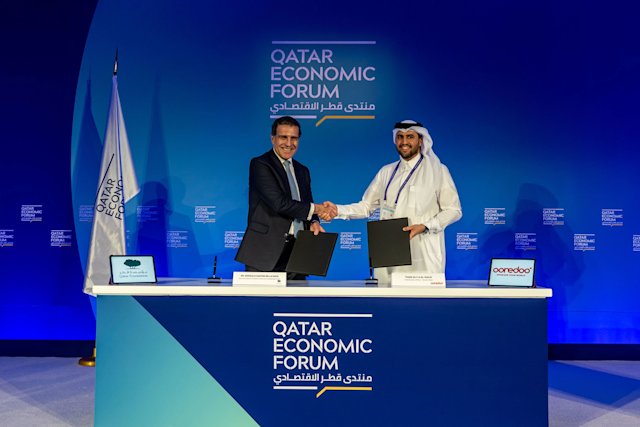
Our partnership with Qatar Foundation is a pivotal step toward integrating sustainable practices into our core business strategies and contributing positively to Qatar National Vision 2030.
Connections in Tech
Companies defined by their desire to innovate for a more sustainable world signaled their plans to join the tech-focused community at QF’s Qatar Science & Technology Park (QSTP) in May.
China’s Davinci Motor Co., Ltd, whose work centers on robotic vehicles, and leading Unmanned Service Vehicles Manufacturer OceanAlpha Group Ltd – whose products can perform functions including collecting vital data for environmental preservation – both signed Letters of Intent to establish research and development centers at QSTP. They were joined the following month by Tashan Technology, a world-renowned developer of Artificial Intelligence tactile sensing chips.
On the sustainability front, HBKU’s Qatar Environment and Energy Research Institute hosted international stakeholders in the field of photovoltaics – the first time such meetings have been held in Doha – to discuss the ability of these modules to meet the needs of markets and users.
And having explored social, cultural, and political issues through mediums ranging from creative writing and documentaries to research projects, nine student works emerged as winners of Northwestern Qatar’s 11th Media and Research Awards, judged by industry experts in Qatar and local and international media and communication organizations.
Companies defined by their desire to innovate for a more sustainable world signaled their plans to join the tech-focused community at QF’s Qatar Science & Technology Park (QSTP) in May.
China’s Davinci Motor Co., Ltd, whose work centers on robotic vehicles, and leading Unmanned Service Vehicles Manufacturer OceanAlpha Group Ltd – whose products can perform functions including collecting vital data for environmental preservation – both signed Letters of Intent to establish research and development centers at QSTP. They were joined the following month by Tashan Technology, a world-renowned developer of Artificial Intelligence tactile sensing chips.
On the sustainability front, HBKU’s Qatar Environment and Energy Research Institute hosted international stakeholders in the field of photovoltaics – the first time such meetings have been held in Doha – to discuss the ability of these modules to meet the needs of markets and users.
And having explored social, cultural, and political issues through mediums ranging from creative writing and documentaries to research projects, nine student works emerged as winners of Northwestern Qatar’s 11th Media and Research Awards, judged by industry experts in Qatar and local and international media and communication organizations.
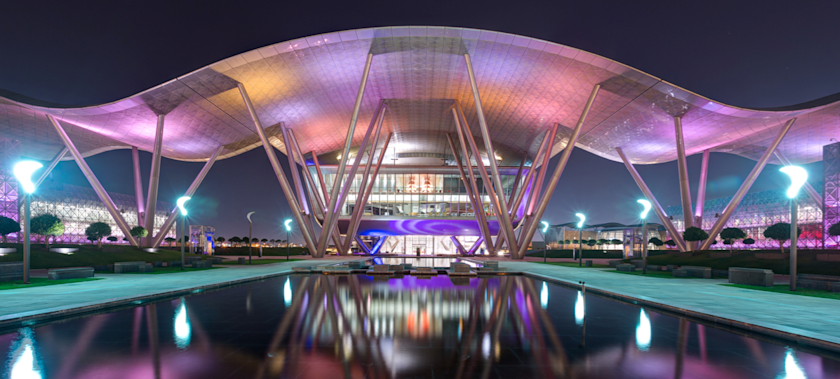
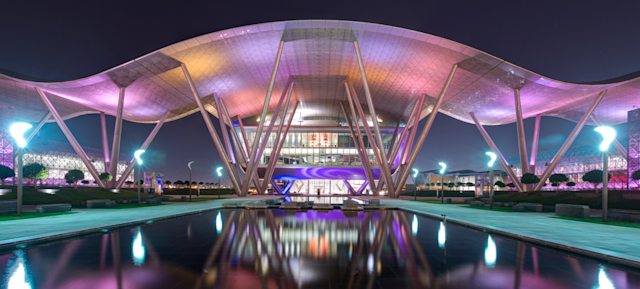
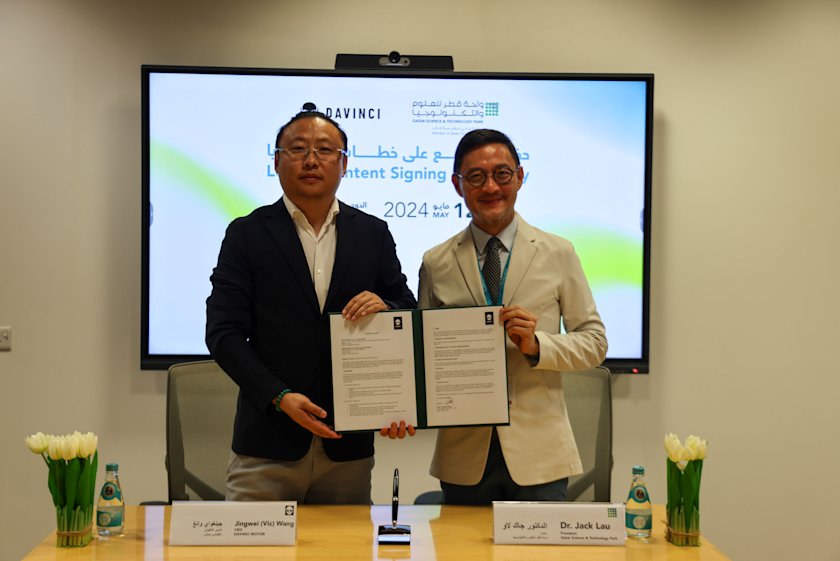
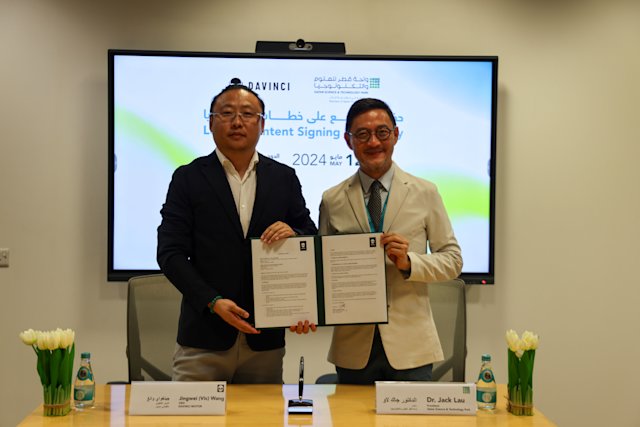
Qatar has positioned itself as a regional leader in innovation, and the possibility of welcoming global leaders in sustainable solutions means the country will further consolidate its regional role and boost its global impact.
Non-Stop Learning
School might have been out, but learning remained in full swing at Education City over the summer – including at QF’s Mukhayamna 2024 summer camp.
The seven-week program, organized by QF’s Pre-University Education, featured activities that developed the skills of students from schools across Qatar in quantum computing, performing arts, sports, and leadership, while fostering Islamic values and Qatari cultural identity.
Students from two QF schools joined a Ministry of Environment and Climate Change initiative that helps preserve Qatar’s marine life, releasing endangered baby turtles at Fuwairit Beach. Meanwhile, local and international high school students explored careers in medicine through a program at WCM-Q, which also partnered with fellow QF partner university Texas A&M University at Qatar (TAMUQ) to sharpen students’ physics and problem-solving skills.
And through HBKU, young learners were able to explore biomedical research and quantum computing, while QF partner university Carnegie Mellon University in Qatar (CMU-Q) invited students to create games and animations through its ninth Alice Middle East Programming Competition, and GU-Q international affairs students used their summer to immerse themselves in projects blending media, technology, and communication in the university’s Innovation Lab.
School might have been out, but learning remained in full swing at Education City over the summer – including at QF’s Mukhayamna 2024 summer camp.
The seven-week program, organized by QF’s Pre-University Education, featured activities that developed the skills of students from schools across Qatar in quantum computing, performing arts, sports, and leadership, while fostering Islamic values and Qatari cultural identity.
Students from two QF schools joined a Ministry of Environment and Climate Change initiative that helps preserve Qatar’s marine life, releasing endangered baby turtles at Fuwairit Beach. Meanwhile, local and international high school students explored careers in medicine through a program at WCM-Q, which also partnered with fellow QF partner university Texas A&M University at Qatar (TAMUQ) to sharpen students’ physics and problem-solving skills.
And through HBKU, young learners were able to explore biomedical research and quantum computing, while QF partner university Carnegie Mellon University in Qatar (CMU-Q) invited students to create games and animations through its ninth Alice Middle East Programming Competition, and GU-Q international affairs students used their summer to immerse themselves in projects blending media, technology, and communication in the university’s Innovation Lab.
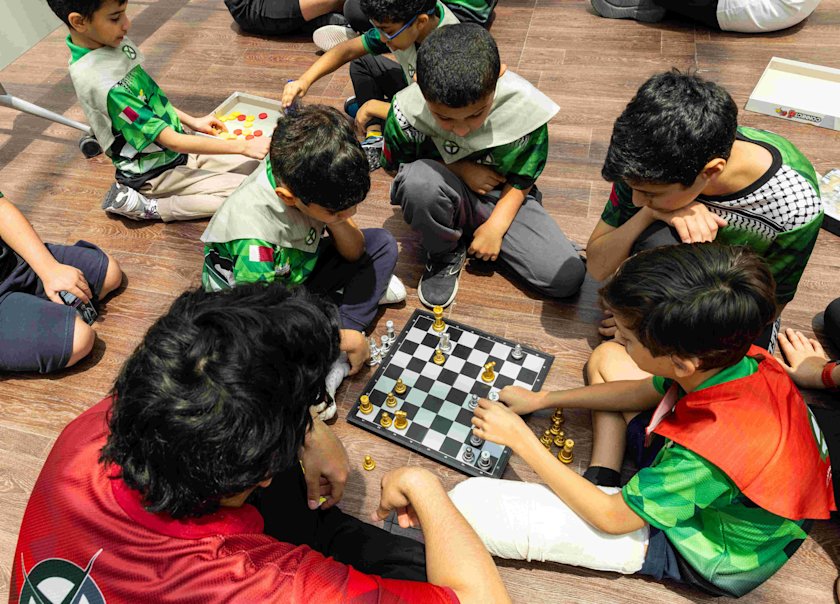
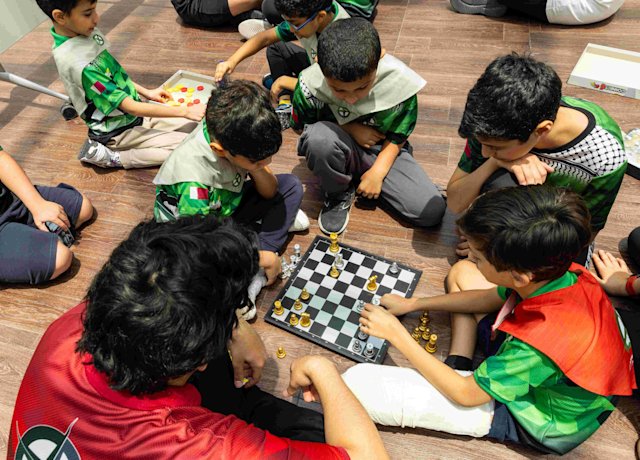
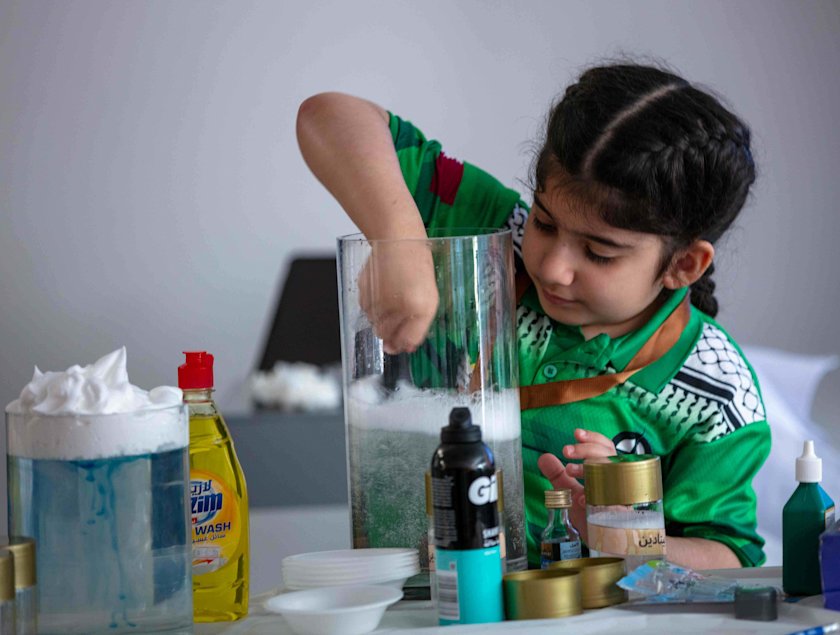
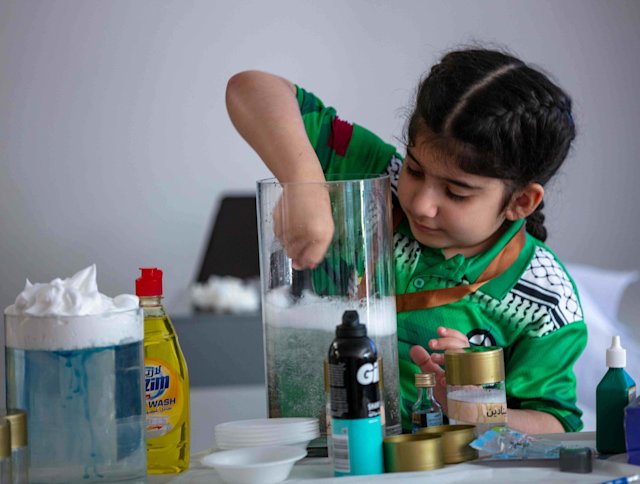
I learned to be more open-minded, collaborate effectively with others, and show kindness.
- 568 school students participated in Mukhayamna 2024, include 20 children from Gaza who were evacuated to Qatar.
- 83 students from 46 high schools participated in WCM-Q’s Summer Enrichment Programs.
- 23 students from 14 local and international high schools completed WCM-Q and TAMUQ’s Physics for Future Doctors Summer Program.
- 14 undergraduate students from universities in Qatar completed Qatar Biomedical Research Institute’s Summer Research Program.
- 22 students from 15 schools in Qatar attended Qatar Center for Quantum Computing’s summer school.
- 115 student teams from 50 schools participated in CMU-Q’s Alice Middle East Programming Competition.
Shining a Green Light
As people across the country were encouraged and empowered to contribute to a greener future through Qatar Sustainability Week, a unique recycling hub that has a role beyond collecting waste opened its doors at QF’s Education City.
Green Island is a community-centric recycling facility featuring educational exhibits, workshops, and interactive displays that offers experiential learning experiences for visitors of all ages. It also hosts a self-service recycling station with streams for paper, plastic, glass, metal, batteries, cables, and electronics.
The hub has been developed through collaborations with organizations including Arab Engineering Bureau, Milaha, QatarEnergy, Seashore Group, Agrico, and Al-Awalia (Qatar Primary Materials Company), with delivery platform Snoonu making its service available for people to send their items to Green Island.
The launch came as QF’s Earthna Center for a Sustainable Future organized the ninth edition of Qatar Sustainability Week, which, through a nationwide range of sustainability-focused activities, promotes Qatar’s sustainable vision and raises awareness about everyone can adopt greener habits and lifestyles.
As people across the country were encouraged and empowered to contribute to a greener future through Qatar Sustainability Week, a unique recycling hub that has a role beyond collecting waste opened its doors at QF’s Education City.
Green Island is a community-centric recycling facility featuring educational exhibits, workshops, and interactive displays that offers experiential learning experiences for visitors of all ages. It also hosts a self-service recycling station with streams for paper, plastic, glass, metal, batteries, cables, and electronics.
The hub has been developed through collaborations with organizations including Arab Engineering Bureau, Milaha, QatarEnergy, Seashore Group, Agrico, and Al-Awalia (Qatar Primary Materials Company), with delivery platform Snoonu making its service available for people to send their items to Green Island.
The launch came as QF’s Earthna Center for a Sustainable Future organized the ninth edition of Qatar Sustainability Week, which, through a nationwide range of sustainability-focused activities, promotes Qatar’s sustainable vision and raises awareness about everyone can adopt greener habits and lifestyles.
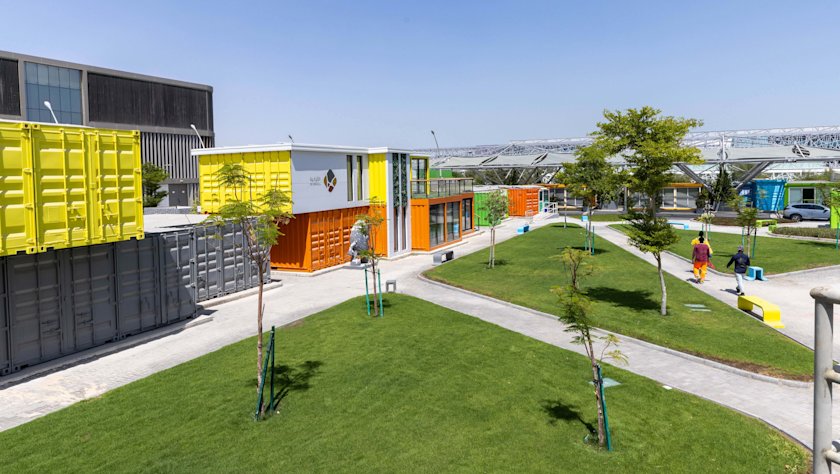
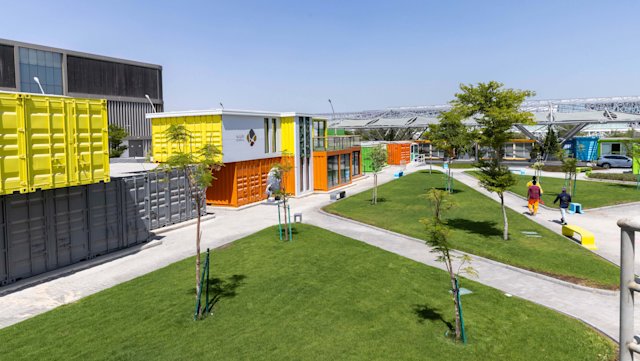
Green Island showcases practical sustainability applications such as construction waste upcycling, sustainable farming, and solar energy. We are also addressing the challenge of food waste, which is a significant issue for the entire region.
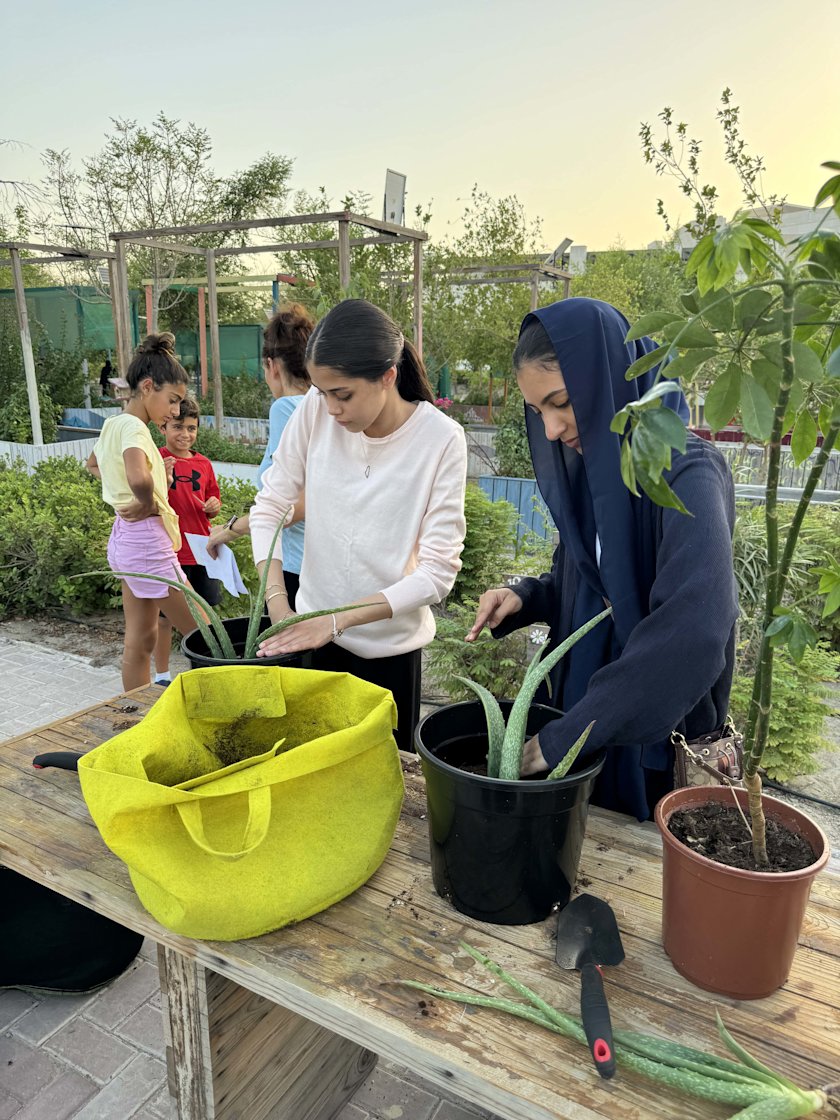
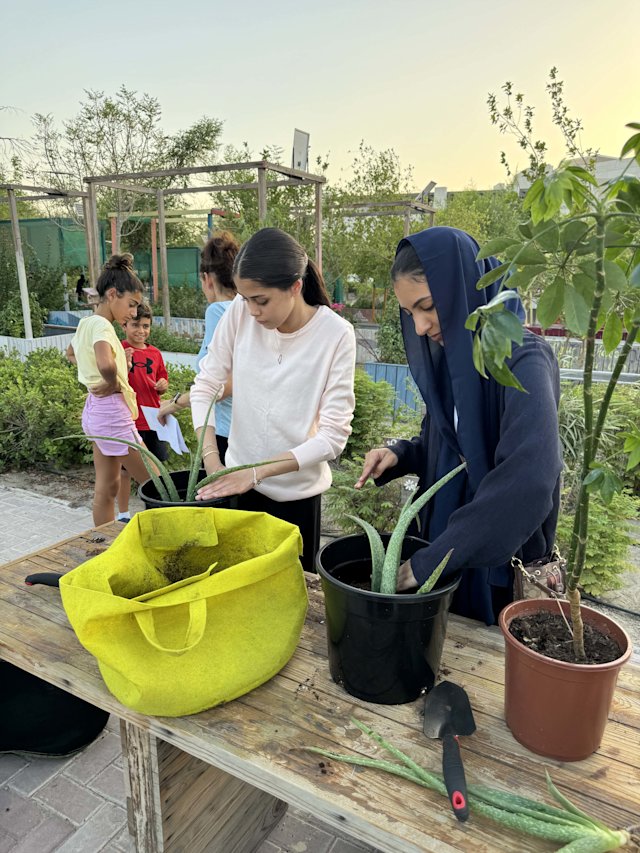
A Warning for the World
A stark warning was sounded by one of the United Nations’ leading figures about the prospects of its Sustainable Development Goals (SDGs) being reached, during an October edition of QF’s Education City Speaker Series.
Her Excellency Amina J. Mohammed, Deputy Secretary-General of the United Nations and Chair of the UN Sustainable Development Group – who also spoke at the DIFI-organized conference on the family – explained how progress toward the SDGs has been hampered by deepening inequalities, caused by overlapping crises, geopolitical conflicts, climate challenges, and economic turbulence.
Ahead of Doha hosting the Second World Summit for Social Development 2025, she outlined how only 17 percent of SDGs are on target, and also aired her views on Middle East conflicts, saying: “There is no war that is deserving of the kind of damage and atrocities committed on society – there must be a pathway back to peace.”
Her words came as the war in Gaza reached the one-year mark, with QF’s Sidra Medicine – along with six other hospitals in Qatar – continuing to provide urgent medical care for injured Palestinian children, while an academic at QF’s Hamad Bin Khalifa University (HBKU) published a policy brief for Gaza’s reconstruction and future leadership.
A stark warning was sounded by one of the United Nations’ leading figures about the prospects of its Sustainable Development Goals (SDGs) being reached, during an October edition of QF’s Education City Speaker Series.
Her Excellency Amina J. Mohammed, Deputy Secretary-General of the United Nations and Chair of the UN Sustainable Development Group – who also spoke at the DIFI-organized conference on the family – explained how progress toward the SDGs has been hampered by deepening inequalities, caused by overlapping crises, geopolitical conflicts, climate challenges, and economic turbulence.
Ahead of Doha hosting the Second World Summit for Social Development 2025, she outlined how only 17 percent of SDGs are on target, and also aired her views on Middle East conflicts, saying: “There is no war that is deserving of the kind of damage and atrocities committed on society – there must be a pathway back to peace.”
Her words came as the war in Gaza reached the one-year mark, with QF’s Sidra Medicine – along with six other hospitals in Qatar – continuing to provide urgent medical care for injured Palestinian children, while an academic at QF’s Hamad Bin Khalifa University (HBKU) published a policy brief for Gaza’s reconstruction and future leadership.
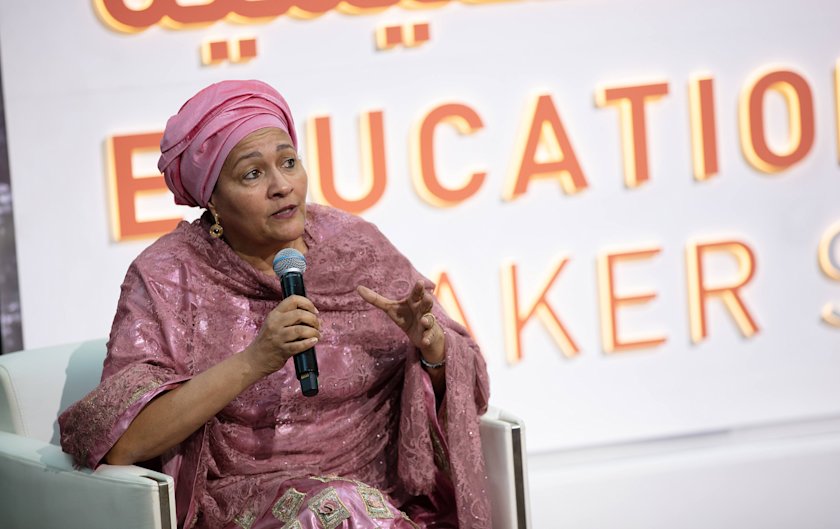
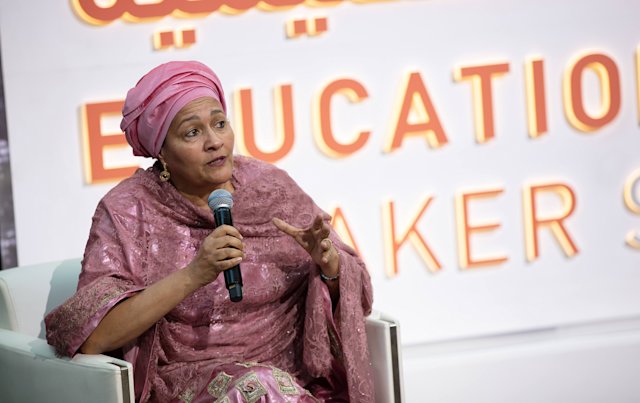
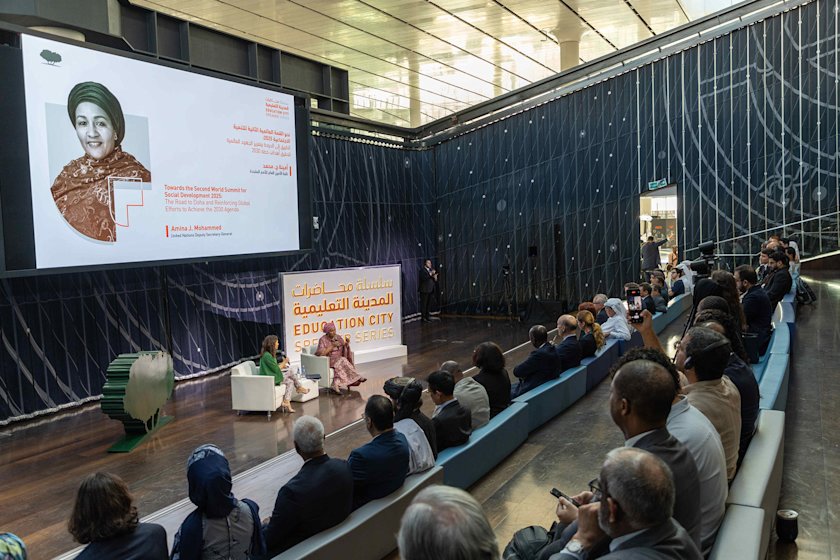
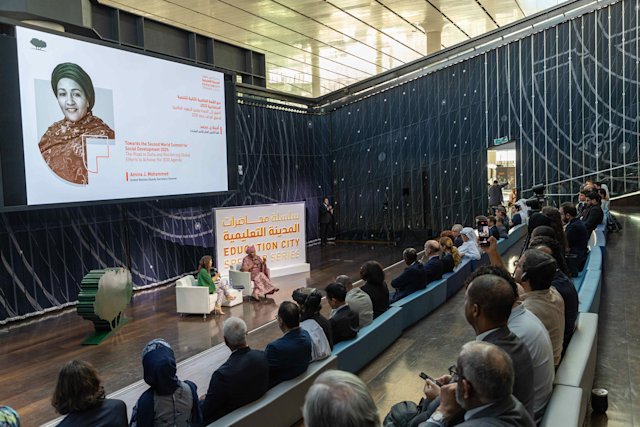
The outlook for achieving people-centered development and meeting the UN’s 2030 Agenda for Sustainable Development is very fragile, but it isn’t too late to change course.
Collaboration Holds the Key
The need for environmental sustainability on a global scale runs through the UN SDGs – and in October, leaders from government, business, academia, and NGOs gathered in Doha with the aim of shaping Qatar’s approach to climate action.
The fourth edition of the Qatar National Dialogue on Climate Change, organized by the Ministry of Environment and Climate Change alongside QF’s Earthna Center for a Sustainable Future, examined strategies for adaptation and mitigation, with a specific lens being turned on eco-tourism and nature-based solutions, the outcomes of COP28 and the path to COP29, carbon management, and mitigation emissions.
International and cross-sector collaboration in addressing climate challenges was emphasized as key to success, with Dr. Gonzalo Castro de la Mata, Executive Director, Earthna, saying: “The effects of climate change will be felt everywhere, and experts agree that hot and arid countries like Qatar will be most impacted by the effects of rising temperatures.
“It is therefore vital that we all – individuals, businesses, organizations, academia – acknowledge our role in this crisis and take decisive action to secure a sustainable future.”
The need for environmental sustainability on a global scale runs through the UN SDGs – and in October, leaders from government, business, academia, and NGOs gathered in Doha with the aim of shaping Qatar’s approach to climate action.
The fourth edition of the Qatar National Dialogue on Climate Change, organized by the Ministry of Environment and Climate Change alongside QF’s Earthna Center for a Sustainable Future, examined strategies for adaptation and mitigation, with a specific lens being turned on eco-tourism and nature-based solutions, the outcomes of COP28 and the path to COP29, carbon management, and mitigation emissions.
International and cross-sector collaboration in addressing climate challenges was emphasized as key to success, with Dr. Gonzalo Castro de la Mata, Executive Director, Earthna, saying: “The effects of climate change will be felt everywhere, and experts agree that hot and arid countries like Qatar will be most impacted by the effects of rising temperatures.
“It is therefore vital that we all – individuals, businesses, organizations, academia – acknowledge our role in this crisis and take decisive action to secure a sustainable future.”
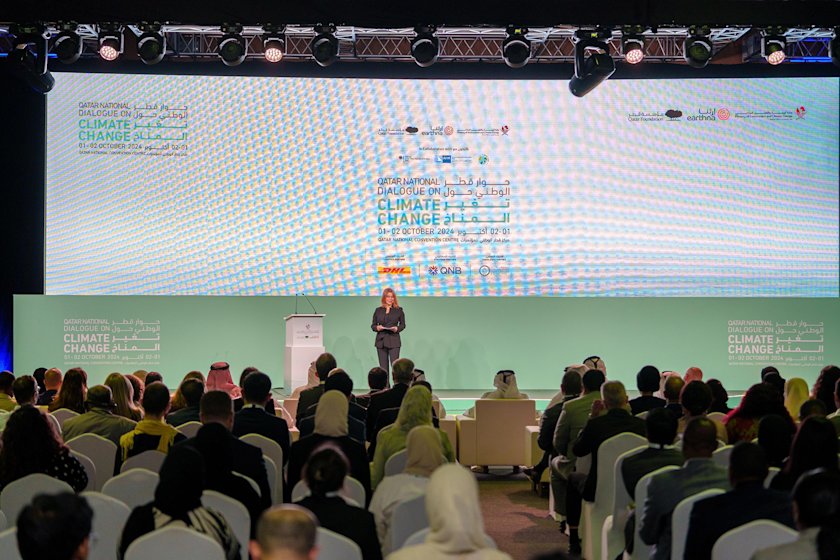
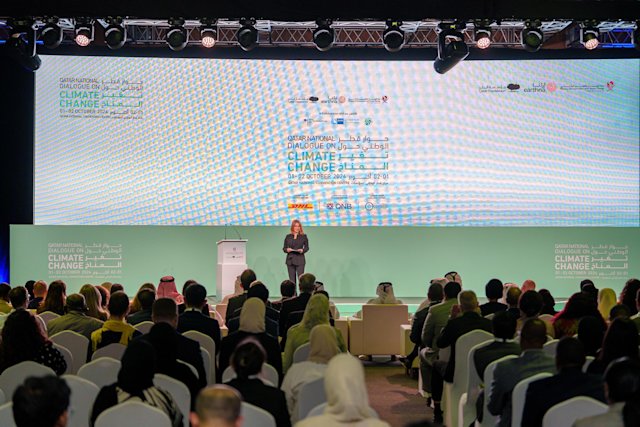
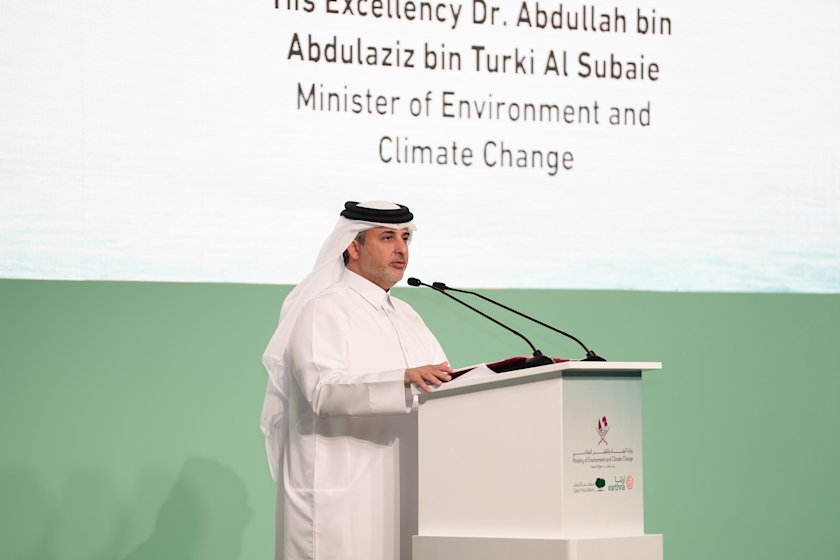
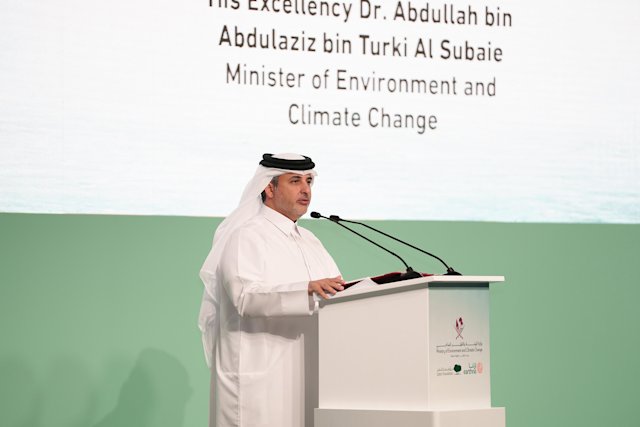
The Qatar National Dialogue on Climate Change saw white papers launched on topics including:
- Climate change innovation
- Artificial Intelligence to combat climate change
- Green and sustainable finance
- Sustainable transport


Spearheading a Scientific Renaissance
Almost two decades ago, QF formed the Arab Expatriate Scientists Network, with its aim being to help nurture a renaissance of the proud tradition of Arab science and research, by reconnecting scientists, intellectuals, and scholars with their roots in the Arab world – so they can contribute to its development and its future.
This network has now evolved into Arab Global Scholars (AGS): an innovation-focused community linking Arab scholars, research institutes, universities, and industry partners to advance science, research, and capacity-building projects from within Qatar. And in November, its members came together at the AGS Annual Gathering, held at QF member Hamad Bin Khalifa University (HBKU).
With its opening attended by Her Highness Sheikha Moza bint Nasser, Chairperson of Qatar Foundation, the three-day event saw internationally and locally based Arab experts join dialogues and workshops centered on crucial fields such as precision health and biotech, AI, cybersecurity, sustainability, and environmental health.
And the gathering also unveiled AGS’ digital platform: an interactive space introducing AGS members to an array of opportunities for collaboration, from research projects and academic exchanges to professional development opportunities – making geography no obstacle to impact being generated by Arab expertise.
Almost two decades ago, QF formed the Arab Expatriate Scientists Network, with its aim being to help nurture a renaissance of the proud tradition of Arab science and research, by reconnecting scientists, intellectuals, and scholars with their roots in the Arab world – so they can contribute to its development and its future.
This network has now evolved into Arab Global Scholars (AGS): an innovation-focused community linking Arab scholars, research institutes, universities, and industry partners to advance science, research, and capacity-building projects from within Qatar. And in November, its members came together at the AGS Annual Gathering, held at QF member Hamad Bin Khalifa University (HBKU).
With its opening attended by Her Highness Sheikha Moza bint Nasser, Chairperson of Qatar Foundation, the three-day event saw internationally and locally based Arab experts join dialogues and workshops centered on crucial fields such as precision health and biotech, AI, cybersecurity, sustainability, and environmental health.
And the gathering also unveiled AGS’ digital platform: an interactive space introducing AGS members to an array of opportunities for collaboration, from research projects and academic exchanges to professional development opportunities – making geography no obstacle to impact being generated by Arab expertise.
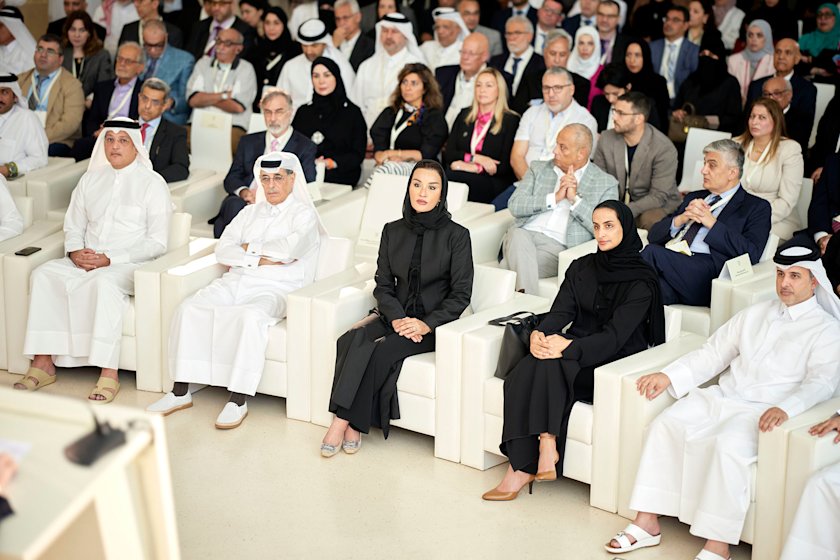
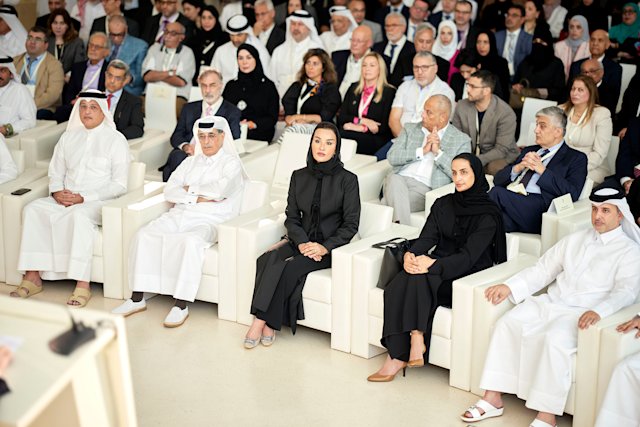
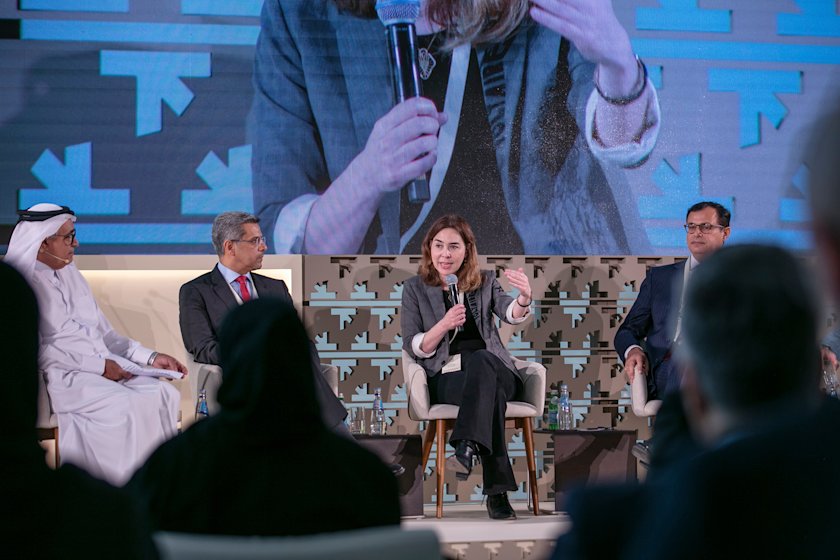
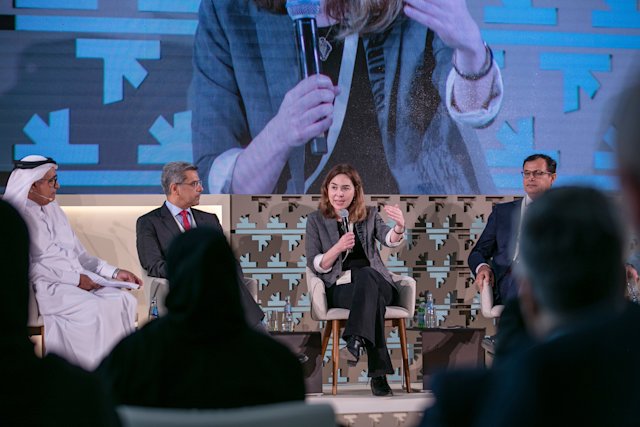
Today, AGS members may be based anywhere in the world, as through technology we explore new and different methods of collaboration, making it easier for everyone to contribute to ensuring this region is stronger and better able to overcome the challenges of the 21st Century.
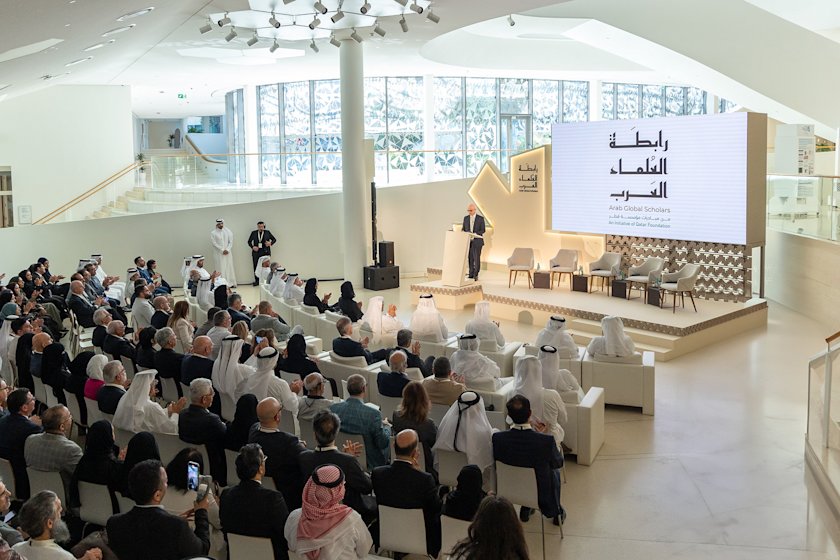
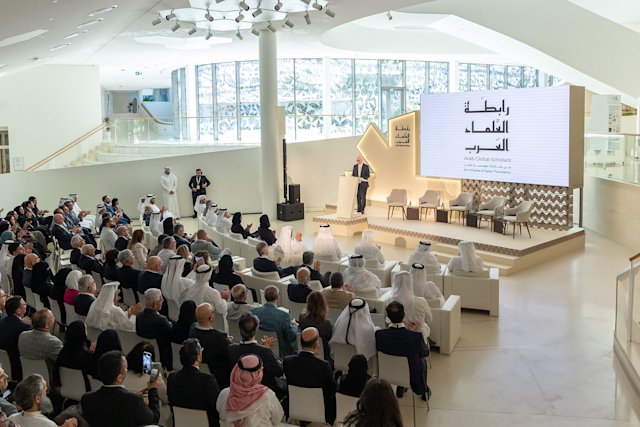
A Global Showcase
QF-generated sustainability innovations – from energy consumption to water security to circular economy solutions – were showcased to the world at the 2024 United Nations Climate Change Conference (COP29) in November, as faculty from HBKU joined Qatar’s delegation in Baku.
Meanwhile, at home, HBKU and QF partner university Texas A&M University at Qatar brought together global experts in chemistry, materials science, and engineering to discuss urgent environmental challenges and promote sustainable innovation.
Dialogue and Direction
Northwestern Qatar was also fostering dialogue through its Rawabet conference series, exploring pressing global issues with a particular focus on offering a Global South perspective; with fellow QF partner university Virginia Commonwealth University School of the Arts in Qatar opening up new developments and career paths in contemporary art through its first Art Week.
And children of Qatar-based United Nations agency staff gained real-world career insights through a special edition of QF-founded Qatar Career Development Center’s ‘Little Employee’ initiative – while, on the sporting scene, the very best of the Arabian horse breed was on display at the Al Shaqab International Arabian Horse Show at Education City, sponsored by the Social & Sport Contribution Fund (Daam).
QF-generated sustainability innovations – from energy consumption to water security to circular economy solutions – were showcased to the world at the 2024 United Nations Climate Change Conference (COP29) in November, as faculty from HBKU joined Qatar’s delegation in Baku.
Meanwhile, at home, HBKU and QF partner university Texas A&M University at Qatar brought together global experts in chemistry, materials science, and engineering to discuss urgent environmental challenges and promote sustainable innovation.
COP29 was an opportunity for HBKU to demonstrate how it supports Qatar’s vibrant research and development ecosystem by leveraging synergies with renowned partners in the country and around the world, in service of national and international priorities.
